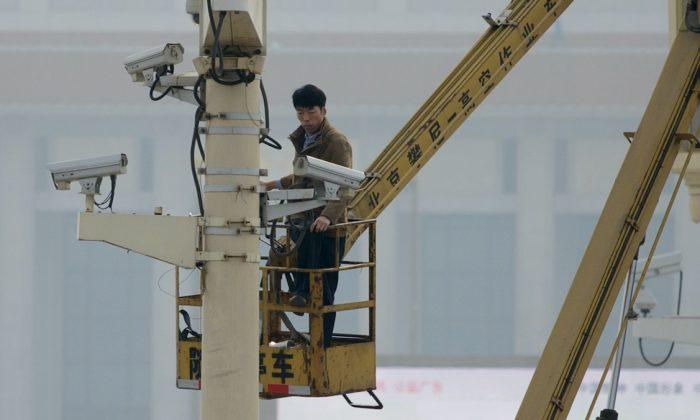A state-run Chinese company affiliated with China Telecom has been tapped for a vast project that would install a “video surveillance system” in major cities in the Philippines, sparking fears that sensitive data might leak into the hands of China’s communist regime and be exploited for ill.
Senator Ralph Recto said during plenary debates on the 2019 national budget on Wednesday, Dec. 12, the project might pose a “security threat.”
Recto warned that the project might compromise the local telco infrastructure since the contractor, China International Telecommunication Construction Corp., was an affiliate of China Telecommunications Corp., a partner of Mislatel Consortium that recently won a bid to become the next major telco service provider in the Philippines, according to the Inquirer.
“China will have access on surveillance, PNP (Philippine National Police) database, [and other] big data on Filipinos,“ the senator wrote in a text message, adding that ”we will be paying for it. Crazy.”
Access to the personal data of millions of Filipinos by Chinese tech companies like Huawei is concerning due to these firms’ alleged links to the communist state’s security apparatus.
In a report titled “Huawei: A Tool of Espionage, Subversion, and Technological Dominance,” Jasper Fakkert, editor-in-chief of The Epoch Times, argues that “Huawei also plays a key role in the Chinese Communist Party’s programs of mass surveillance, human rights abuse, and technological dominance.”
‘Efficient Management of Public Order’
Sen. Loren Legarda responded to Sen. Recto’s worries, saying the project was aimed at improving the government’s capacity for “collaborative and efficient management of public order, security, and safety through the use of available modern information and communications technology.”Legarda added the project “aims to reduce crime by 15 percent and improve response time by 25 percent.”
The planned surveillance system, which foresees the installation of some 12,000 CCTV cameras in Metro Manila and Davao City, is to be set up under the first phase of the “Safe Philippines Project.”
Huawei ‘Wants To Know’
A Huawei official was cited by the publication Rappler as saying that China’s controversial surveillance and credit score system could soon become a reality in the Philippines.A high-ranking Huawei official, who was not named in the report, told an assembly of business leaders at a recent forum in Manila the tech giant wants to install a network of cameras across the country.
“Huawei wants to know what you like to eat, where you want to go,” the official said, before adding, “to secure your safety.”
The official allegedly talked up the surveillance by arguing that analog security measures, such as frisking or x-ray scanners, are unnecessarily hands-on and a hassle.
“When you walk into this particular hotel in the Philippines, you get screened and guards like touching me. I don’t know why,” the official said.
The Huawei official reportedly accentuated the benefits of the company’s advanced camera systems, equipped with artificial intelligence and machine learning.
He cited a use case in China where security personnel were able to rescue a kidnapped child in Beijing within mere hours thanks to pervasive surveillance.
Transactions Promised to Be Faster
The Huawei official reportedly argued that intelligent cameras would make transacting with the government and institutions a breeze.“When you walk in a bank, the cameras will scan you. Once you get to the teller and tell them what you want, the bank will know which documents you lack because the cameras already identified you,” he said.
“When you go to another government office to get that document, that agency will already know what you need and provide you documents,” he added. “Transactions will be faster.”






Friends Read Free